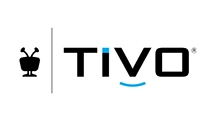Standard Code Signing Certificates
Boost Your Software's Security with Standard Code Signing Certificates
A Standard Code Signing Certificate is a digital certificate that verifies the authenticity and integrity of code or software by providing a cryptographic signature. This type of certificate is issued to organisations or individuals who develop or publish software and need to sign a code to comply with security requirements or assure customers of the authenticity of the software.
A Standard Code Signing Certificate provides a digital signature to software, ensuring its integrity and authenticity. The certificate is crucial for the distribution of software and ensures that users can trust the source of the code they are downloading.
- Standard Validation
- Removes Unknown Publisher Error
- Secure Digital Signature
- Unlimited Software & App Signing
- 3072-bit/4096-bit RSA Key
- Shows Publisher Information
- Includes timestamp functionality
- 3072-bit RSA Signing Key
- 1 to 3 Days Issuance
- Allowed for Individual Developer
- Safe Digital Signature
- Secure App & Software
- Includes timestamp functionality
- SHA-2 Encryption
- Boost Software Integrity
- Safe Digital Signature
- Allowed for Individual Developer
- Secure App & Software
- Extended Validation
- Shows Publisher Information
- Private Key in USB Token
- Boost MS Smartscreen Score
- Unlimited Software & App Signing
- 3072-bit/4096-bit RSA Key
- Includes timestamp functionality
- Unlimited Signing
- 3072-bit Signature Key
- Boost MS Smartscreen Score
- USB Token Storage
- 1-5 Business Days
- 3072-bit Signature Key
- SHA-2 Encryption
- USB Token Storage
- Boost MS Smartscreen Score
- Support All Platforms
- 1-5 Business Days
Advantages of Standard Code Signing Certificates
Trust and Authenticity
The digital signature provided by a Standard Code Signing Certificate assures users that the software they are downloading comes from a trusted source and has not been tampered with.
Compliance
Many platforms, such as Microsoft Windows and Apple macOS, require software to be signed with a valid code signing certificate for security purposes. A Standard Code Sign Certificate ensures compliance with these security requirements.
Reduced Security Risks
By signing software with a Standard Code Sign Certificate, developers and publishers can reduce the risk of security breaches and protect users from malware and other threats.
Better User Experience
Users are more likely to trust and use software that has been signed with a Standard Code Sign Certificate, as it provides a level of assurance that the software is safe to download and use.
Brand Reputation
Using a Standard Code Signing Certificate can help build and maintain a positive brand reputation by showing customers that the organization takes security and authenticity seriously.
Tamper Evidence
Regular Code Sign Certificates provide a digital signature that is embedded in the code and remains valid even if the code is modified. This tamper-evident feature ensures that any changes made to the code after signing will be detected, providing an added layer of security and trust.
Standard Code Signing Certificates Price Comparison
| Subscription |
|
|
|
|
|---|---|---|---|---|
| Options for Multiple Years | Max 3 years | Max 3 years | Max 3 years | Max 3 years |
| Issuance Time | 4-8 Business Days | 4-8 Business Days | 4-8 Business Days | 4-8 Business Days |
| Encryption Strength | SHA – 2, Up to 256-bits | SHA – 2, Up to 256-bits | SHA – 2, Up to 256-bits | SHA – 2, Up to 256-bits |
| CSR/RSA Key Length | 3072-bit or 4096-bit | 3072-bit or 4096-bit | 3072-bit or 4096-bit | 3072-bit or 4096-bit |
| Device Ubiquity | More than 99% | More than 99% | More than 99% | More than 99% |
| Validation Type | Standard Validation | Extended Validation | Standard Validation | Extended Validation |
| Validation Methods | Phone Call & Basic Business Validation | Phone Call & Business Validation | Phone Call & Basic Business Validation | Phone Call & Business Validation |
| Instant Reputation w/ MS Smartscreen Filter | No | Yes | No | Yes |
| Delivery Modes | USB token | USB token | USB token | USB token |
| Time Stamp | ||||
| Malware Scan | ||||
| Free Vulnerability Check | ||||
| Technical Support | ||||
| Warranty | ||||
| Refund Policy | Within First 30 – Days | Within First 30 – Days | Within First 30 – Days | Within First 30 – Days |
| Visible Trust Indicator | Digital Signature | Digital Signature with Company Name | Digital Signature | Digital Signature with Company Name |
| Java Signing | ||||
| Microsoft Authenticode Signing | ||||
| MS Office Document Signing | ||||
| Windows Vista x64 kernel-mode signing | ||||
| Adobe Air Signing | ||||
| Microsoft Office VBA signing |
Standard Code Signing Certificate Delivery Methods
Beginning June 1st, 2023, it is necessary to comply with the new guidelines established by the Certificate Authority/Browser Forum for the issuance of Code Signing Certificates. These guidelines require the use of secure hardware storage devices, such as Hardware Security Modules (HSMs), Hardware storage tokens, or Trusted Platform Modules (TPMs), that meet the highest security standards like FIPS 140 Level 2, Common Criteria EAL 4+, or their equivalents, for generating, storing, and utilizing private keys.
To comply with the updated guidelines set by the Certificate Authority/Browser Forum, it is recommended to utilize USB Token for storing cryptographic keys. You can use our flexible and dependable solutions for secure key storage. These solutions are designed to seamlessly integrate into your existing workflows and offer peace of mind while maintaining efficiency.
Delivery Method 1: Get a USB Token Delivered to Your Door
We provide convenient shipping choices for both local and global locations, ensuring that the USB token reaches your doorstep with ease. Our pricing options are varied, allowing you to select the most suitable one based on your specific needs.
Token + US Delivery: For a cost-effective fee of $80.00, have the USB token securely shipped to any location within the United States.
Token + International Delivery: Developers located outside the United States can take advantage of international delivery for $110.00.
Token + Expedited US Delivery: If you require the USB token urgently within the United States, opt for expedited delivery at $120.00 to receive it promptly. Minimize potential delays and seamlessly integrate the USB token into your workflow.
Delivery Method 2: Utilize Your Own Hardware Security Module
If you already possess a certified Hardware Security Module (HSM) or USB token, leverage its capabilities for secure key storage. Ensure that your device meets the stringent security standards of at least FIPS 140-2 Level 2 or Common Criteria EAL 4+ to ensure optimal protection.
Delivery Method 3: Keep Your Private Key Safe in the Cloud
You can simplify your code signing processes using the cloud-based key storage solution without compromising security. Take advantage of the secure cloud environment equipped with Hardware Security Module (HSM) capabilities and centralize your private key storage, making it easily accessible for your distributed development teams.
Standard Code Signing Certificates Compatibility
MS Office
MS Windows 8 & Above
MS Office Macro Files & MS Office VBA
Adobe Air Applications
Mozilla Object Files
Java Applications & Apples
MS Authenticode & other file formats like .xap, .exe, .dll, .msi, .ocx, .xpi and .cab. Apple OS X Signing Windows 8 kernel Mode Signing
Eligibility of Standard Code Signing Certificates
Here are the standard eligibility criteria for a code signing certificate:
- The applicant must have a valid legal entity, such as a registered business or organization.
- The applicant must have a DUNS (Data Universal Numbering System) number or another unique identifier.
- The applicant must have a registered domain name that matches their legal entity name or have a document proving their association with the domain.
- The applicant must pass a validation process to confirm their identity and authorization to sign the code on behalf of their organization.
- The applicant must comply with the Certificate Authority's (CA) policies and requirements.
- The signed code must not be malicious or harmful to end users.
- The signed code must not violate any laws or regulations.
- The signed code must not use any invalid or untrusted digital certificates.
How Does Standard Code Signing Certificate Work?
First, the developer or software publisher generates a public and private key pair using a key certificate signing request generation tool. The private key is kept secret, while the public key is included in the code signing certificate.
Next, the developer or software publisher submits a certificate signing request (CSR) to a trusted certificate authority (CA) that verifies their identity and the authenticity of the code. The CA then issues a code signing certificate, which contains the public key and other information about the software and its publisher.
Once the certificate is obtained, the developer or software publisher uses it to sign their code or software. This involves creating a digital signature using the private key that can be verified using the public key in the code signing certificate. This signature is added to the code or software to create a digital hash, which is a unique identifier of the software.
When the user downloads or installs the software, their computer checks the digital signature against the public key in the code signing certificate to ensure that the software has not been tampered with and that it is from a trusted source. If the signature matches, the software is considered authentic and can be installed without any warnings or errors. If the signature does not match, the user is warned that the software may be potentially unsafe and should not be installed.
Standard Code Signing Certificate FAQs
What is a Standard Code Signing Certificate?
A Standard Code Sign Certificate is a digital security certificate used to sign software or code to ensure its authenticity and integrity. It contains a public key that can be used to verify the digital signature of the code.
Who Provides Standard Code Signing Certificates?
Standard code sign digital certificates are provided by trusted certificate authorities (CA) such as Comodo and Sectigo. These CAs verify the identity and authenticity of the code publisher before issuing the certificate.
How Do I Get a Standard Code Sign Certificate for My Application?
To get a cheap code signing certificate for your application, you need to generate a public-private key pair, create a certificate signing request (CSR), submit it to a trusted certificate authority (CA), and complete the verification process. Once verified, the CA will issue the certificate.
How Much Time Does It Take to Get Issuance of Standard Code Signing?
The time it takes to get the issuance of a standard code sign certificate varies depending on the certificate authority (CA) and the verification process. It can range from a few hours to several days.
What is the Difference Between Standard Code Signing and EV Code Signing?
The main difference between Standard Code Sign and EV (Extended Validation) Code Signing is the level of validation and authentication of the publisher. EV Code Signing requires a more rigorous verification process and provides a higher level of assurance to users.
What is the requirement of Standard Code Signing?
The requirement of standard code sign is to ensure the authenticity and integrity of software or code. It is necessary for software publishers and developers to sign their code with a standard code signing certificate to provide a trusted source for their users.
Is It Possible for Software Developers to Get Standard Code Sign?
Yes, it is possible for software developers to get regular code signing certificates.
Live Chat
Talk to our 24/7 SSL, Code Signing, & Email Signing experts to resolve issues regarding issuance, validation, & installation.
24/7 Email Ticketing
Connect with our support experts via call or support ticket for validation, or sales queries.
Code Signing Resources
Related Resources
Our Trusted Clients









